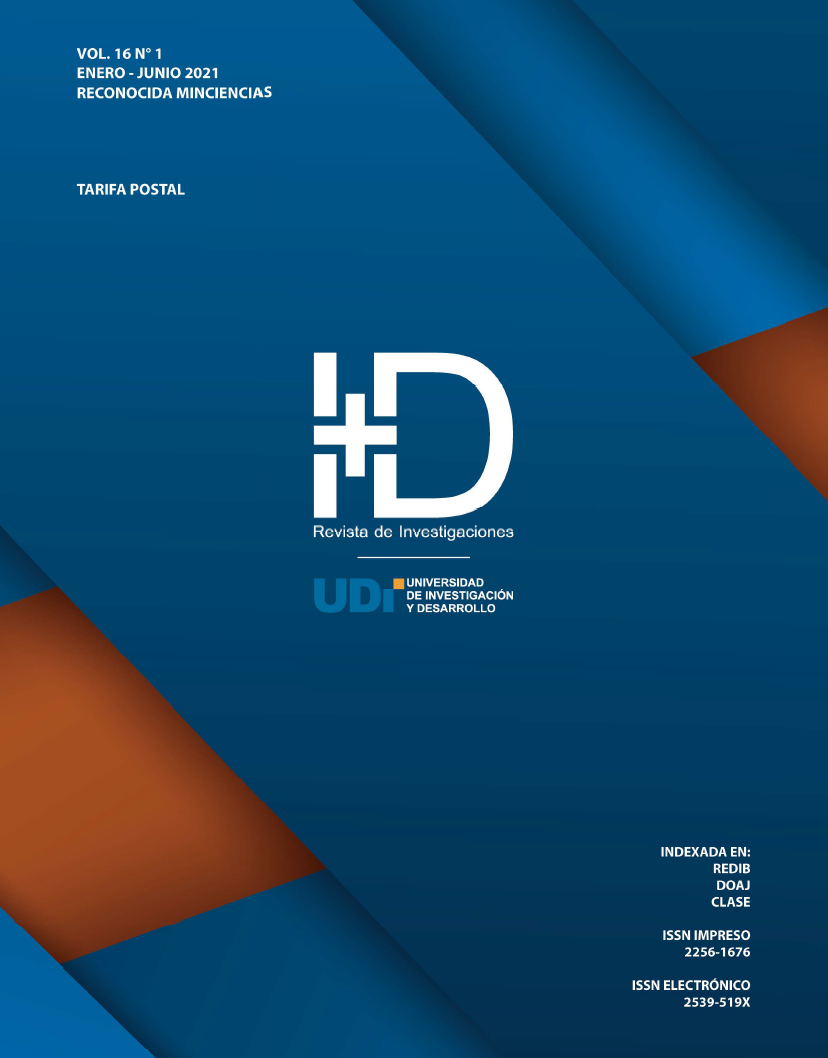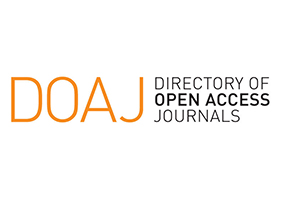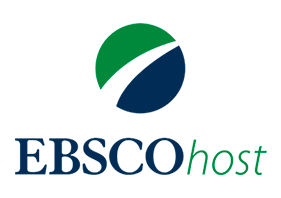Evaluation of preference for use of gamificated tools in higher education
DOI:
https://doi.org/10.33304/revinv.v16n1-2021002Keywords:
Information technology, multimedia method, information system, gamificationAbstract
This study is a general overview of the design, creation and implementation of a virtual learning object (VLO) created under concepts of self-management theory and gamification for teaching in university environments, as well as its subsequent evaluation in terms of preference for use by students. It starts from the conceptualization of the VLO and the theoretical bases in its construction, then explains the methodologies and dynamics involved in its development, and finally shows the results of the tests of preference for use applied to university students. With the above, this VLO is presented as a unique case study in its type, involving gamification and the use of this instrument to address the teaching of information systems courses in an undergraduate program in industrial engineering. This analysis answers questions such as: How is an VLO constructed with gamification concepts? And what variables influence the preference for the use of this tool?Downloads
References
Acosta-Medina, J. K., Torres-Barreto, M. L. y Alvarez-Melgarejo, M. (2020a). Literature Mapping About Gamification in the Teaching and Learning Processes. Revista ESPACIOS, 41(11), 26. https://www.revistaespacios.com/a20v41n11/20411126.html
Acosta-medina, J. K., Torres-Barreto, M. L., Alvarez-Melgarejo, M. y Paba-Medina, M. C. (2020b). Gamificación en el ámbito educativo: Un análisis bibliométrico. I+D Revista de Investigaciones, 15(1), 30-39
Almazán, F. y Camus, J. C. (2013). Modelo de test de usuario. Guía Web – Versión 2.0. http://www.guiadigital.gob.cl/guia-v2/capitulos/05/anexos/pauta-test-usuario.pdf
Buitrago-Rodríguez, J., Tovar-Sánchez, L. y Lamos-Díaz, H. (2018). Modelo de ecuaciones estructurales para el estudio de la percepción de los estudiantes de pregrado de ingeniería industrial con el Proyecto Educativo del Programa-PEP. Revista Educación en Ingeniería, 13(26), 90–100. http://dx.doi.org/10.26507/rei.v13n26.895
Deterding, S., Khaled, R., Nacke, L. E. y Dixon, D. (2011). Gamification: Toward a Definition. CHI 2011 Gamification Workshop Proceedings (Vol. 12). ACM.
Díaz, D. (2014). TIC en educación superior: Ventajas y desventajas. Educación y Tecnología, (4), 44–50. http://revistas.umce.cl/index.php/edytec/article/view/180
Díaz, A. y Torres-Barreto, M. (2017). Plan para la integración de las TIC en el aula del programa de Ingeniería Industrial de la Universidad Industrial de Santander [trabajo de grado, Universidad Industrial de Santander].
Enriquez, L. y Casas, D. (2014). Usabilidad en aplicaciones móviles. Informes Científicos Técnicos - UNPA, 5(2), 25-47. https://doi.org/10.22305/ict-unpa.v5i2.71
Falco, M. (2017). Reconsiderando las practicas educativas: TICs en el proceso de enseñanza-aprendizaje. Tendencias pedagógicas, 29, 59-79. https://doi.org/10.15366/tp2017.29.002
Gils, F. Van. (2005). Potential Applications of Digital Storytelling in Education. 3rd Twente Student Conference on IT (Vol. 7). University of Twente, Faculty of Electrical Engineering, Mathematics and Computer Science Enschede.
Góngora, J. J. (2002). La autogestión del aprendizaje en ambientes educativos centrados en el alumno. Boletín del Modelo Educativo, Tecnologico de Monterrey.
Huizenga, J., Admiraal, W., Akkerman, S. y Ten Dam, G. (2009). Mobile Game-Based Learning in Secondary Education: Engagement, Motivation and Learning in a Mobile City Game. Journal of Computer Assisted Learning, 25(4), 332–344. https://doi.org/10.1111/j.1365-2729.2009.00316.x
Sánchez, I. (2014). Estado del arte de las metodologías y modelos de los Objetos Virtuales de Aprendizaje (OVAs) en Colombia. Entornos, (28), 93–107. https://doi.org/10.25054/01247905.528
Joplin, L. (1981). On Defining Experiential Education. Journal of Experiential Education, 4(1), 17–20. https://doi.org/10.1177/105382598100400104
Kakasevski, G., Mihajlov, M., Arsenovski, S. y Chungurski, S. (2008). Evaluating Usability in Learning Management System Moodle. ITI 2008 - 30th International Conference on Information Technology Interfaces, 36(1), 178–187. https://doi.org/ 10.1109/ITI.2008.4588480
Lobo-Rueda, M. A., Paba-Medina, M. C. y Torres-Barreto, M. L. (2020). Análisis descriptivo de experiencias gamificadas para enseñanza y aprendizaje en educación superior en ingeniería. Revista ESPACIOS, 41(16), 21. https://www.revistaespacios.com/a20v41n16/20411621.html
Naranjo, C. (2007). Cambiar la Educación para Cambiar el Mundo (1.ª ed.). Editorial Cuarto Propio.
Mahalakshmi, M. y Sundararajan, M. (2013). Traditional SDLC Vs Scrum Methodology – A Comparative Study. International Journal of Emerging Technology and Advanced Engineering, 3(6), 2–6.
Martínez, R., Gisbert, M. y Larraz, V. (2018). Ecosistemas tecnológicos de aprendizaje y gestión educativa. Edutec. Revista Electrónica de Tecnología Educativa, (64), 1–17. https://doi.org/10.21556/edutec.2018.64.1025
MinEducación. (2009). Objetos Virtuales de Aprendizaje.
Martínez Ortega, R. M., Tuya Pendás, L. C., Martínez Ortega, M., Pérez Abreu, A. y Cánovas, A. M. (2009). El coeficiente de correlacion de los rangos de Spearman, caracterización. Revista Habanera de Ciencias Medicas, 8(2).
Restrepo, L. y Gonzáles, J. (2007). From Pearson to Spearman. Revista Colombiana de Ciencias Pecuarias, 20(2), 183–192. http://www.scielo.org.co/scielo.php?script=sci_arttext&pid=S0120-06902007000200010
Rodriguez, L. (2014). Cambio de paradigma educativo: del maestro autoritario a la autogestión del alumnado. Iberoamérica Social: Revista-Red de Estudios Sociales, (2), 152–162.
Seaborn, K. y Fels, D. I. (2015). Gamification in Theory and Action: A survey. International Journal of Human-Computer Studies, 74, 14–31. https://doi.org/10.1016/j.ijhcs.2014.09.006
Tedesco, J. C. (1998). Educación y sociedad del conocimiento y de la información. Revista Colombiana de Educación, (36), 36–38.
Vélez, A. (2015). Impacto de las tecnologías de la información en la docencia en educación superior [tesis doctoral, Universidad de León].
Zimmerman, B. J. (1989). A Social Cognitive View of Self-Regulated Academic Learning. Journal of Educational Psychology, 81(3), 329–339. https://doi.org/10.1037/0022-0663.81.3.329












